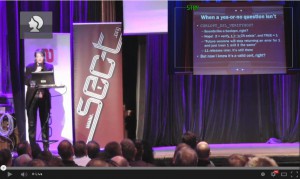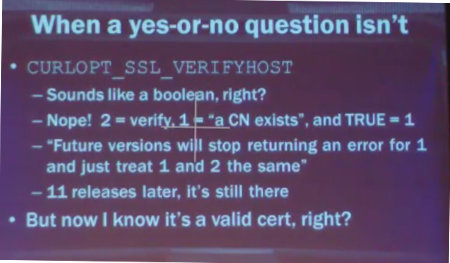 Bear with me. It is time to take a deep dive into the libcurl internals and see how it handles timeouts and timers. This is meant as useful information to libcurl users but even more as insights for people who’d like to fiddle with libcurl internals and work on its source code and architecture.
Bear with me. It is time to take a deep dive into the libcurl internals and see how it handles timeouts and timers. This is meant as useful information to libcurl users but even more as insights for people who’d like to fiddle with libcurl internals and work on its source code and architecture.
socket activity or timeout
Everything internally in libcurl is using the multi, asynchronous, interface. We avoid blocking calls as far as we can. This means that libcurl always either waits for activity on a socket/file descriptor or for the time to come to do something. If there’s no socket activity and no timeout, there’s nothing to do and it just returns back out.
It is important to remember here that the API for libcurl doesn’t force the user to call it again within or at the specific time and it also allows users to call it again “too soon” if they like. Some users will even busy-loop like crazy and keep hammering the API like a machine-gun and we must deal with that. So, the timeouts are mostly to be considered advisory.
many timeouts
A single transfer can have multiple timeouts. For example one maximum time for the entire transfer, one for the connection phase and perhaps even more timers that handle for example speed caps (that makes libcurl not transfer data faster than a set limit) or detecting transfers speeds below a certain threshold within a given time period.
A single transfer is done with a single easy handle, which holds a list of all its timeouts in a sorted list. It allows libcurl to return a single time left until the nearest timeout expires without having to bother with the remainder of the timeouts (yet).
Curl_expire()
… is the internal function to set a timeout to expire a certain number of milliseconds into the future. It adds a timeout entry to the list of timeouts. Expiring a timeout just means that it’ll signal the application to call libcurl again. Internally we don’t have any identifiers to the timeouts, they’re just a time in the future we ask to be called again at. If the code needs that specific time to really have passed before doing something, the code needs to make sure the time has elapsed.
Curl_expire_latest()
A newcomer in the timeout team. I figured out we need this function since if we are in a state where we need to be called no later than a certain specific future time this is useful. It will not add a new timeout entry in the timeout list in case there’s a timeout that expires earlier than the specified time limit.
This function is useful for example when there’s a state in libcurl that varies over time but has no specific time limit to check for. Like transfer speed limits and the like. If Curl_expire() is used in this situation instead of Curl_expire_latest() it would mean adding a new timeout entry every time, and for the busy-loop API usage cases it could mean adding an excessive amount of timeout entries. (And there was a scary bug reported that got “tens of thousands of entries” which motivated this function to get added.)
timeout removals
We don’t remove timeouts from the list until they expire. Like for example if we have a condition that is timing dependent, then we set a timeout with Curl_expire() and we know we should be called again at the end of that time.
If we wouldn’t add the timeout and there’s no socket activity on the socket then we may not be called again – ever.
When an internal state transition into something else and we therefore don’t need a previously set timeout anymore, we have no handle or identifier to the timeout so it cannot be removed. It will instead lead to us getting called again when the timeout triggers even though we didn’t really need it any longer. As we’re having an API that allows this anyway, this is already handled by the logic and getting called an extra time is usually very cheap and is not considered a problem worth addressing.
Timeouts are removed automatically from the list of timers when they expire. Timeouts that are in passed time are removed from the list and the timers following will then get moved to the front of the queue and be used to calculate how long the single timeout should be next.
The only internal API to remove timeouts that we have removes all timeouts, used when cleaning up a handle.
many easy handles
I’ve mentioned how each easy handle treats their timeouts above. With the multi interface, we can have any amount of easy handles added to a single multi handle. This means one list of timeouts for each easy handle.
To handle many thousands of easy handles added to the same multi handle, all with their own timeout (as each easy handle only show their closest timeout), it builds a splay tree of easy handles sorted on the timeout time. It is a splay tree rather than a sorted list to allow really fast insertions and removals.
As soon as a timeout expires from one of the easy handles and it moves to the next timeout in its list, it means removing one node (easy handle) from the splay tree and inserting it again with the new timeout timer.







